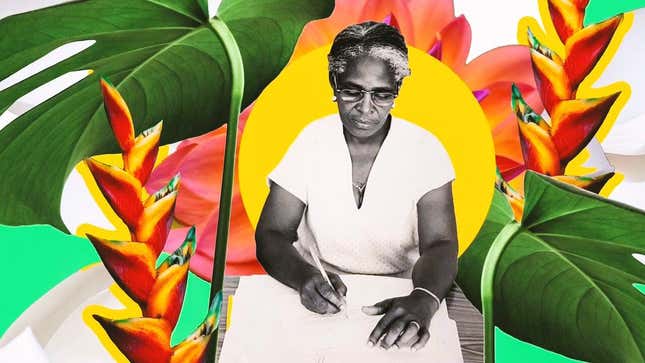‘In Our Mothers’ Gardens’ Explores the Secret Lives of Black Women
A reflection on the one year anniversary of Shantrelle P. Lewis's poignant film on collective healing and self-love.
EntertainmentMovies

As Dr. Kokahvah Zauditu-Selassie, a professor of Black global literature, says in the film In Our Mothers’ Gardens: “You can’t have a short memory and be Black. Because that’s our greatest weapon.” Inspired by Alice Walker’s essay collection, In Search of Our Mothers’ Gardens, director Shantrelle P. Lewis’s 2021 film with Ava DuVernay’s ARRAY, In Our Mothers’ Gardens, offers a poignant meditation on the rich, complex interior lives of Black women in America.
This month marks the first anniversary of Lewis’s directorial debut for a full-length Netflix feature, which deeply moved and challenged me. The 82-minute feature includes interviews of a myriad of accomplished Black women with roots in Louisiana, Mississippi, Chicago, Kentucky, New York, Antigua, South Africa, and Puerto Rico. They include #MeToo founder Tarana Burke, tour manager for The Roots and Chris Rock Tina Farris, Rev. Dr. Theresa S. Thames of Princeton University, Brittney Cooper, author of Beyond Respectability and Professor of Women and Gender Studies at Rutgers, Head of Inclusive Talent Outreach at Netflix Erica Sewell; and NPR’s Senior Director for Programming Yolanda Sangweni. Regardless of where their roots started, the ties that bind in this film are that Black women are mirrors reflecting dynamics prisms. They are limbs that make up their matriarchal tree. Each ancestor is bound to spirit and earth, and, if we listen close enough, we can hear them speaking and guiding us.
Ordinarily, the candid stories we hear in In Our Mothers’ Garden are usually reserved for private conversations, kept only for family to know. The beauty of a film like In Our Mothers’ Garden is that allowance to peek behind the closed doors in the rooms of these women’s lives. In the beginning, we chart the course of their mother’s origins and see stories of migration, leaving home, and traveling unfazed by the limitations of the world. These women talk extensively about matriarchal sacrifice and what was done for them to have a better life for their family. Burke recalled the unforgettable moment when her grandmother threw a pipe through the supermarket window at man who slapped Burke across the face. Cooper recounts how her grandmother from Choudrant, Louisiana, kept a rifle in the door jam to ward off (mainly white) intruders. What resounds is the wisdom these women enshrine in their hearts. Those were the balms for me as I watched the film.
“The women in my family command [with that spirit]. They don’t command loud. They just show up and the command is issued,” says Desiree B. T. Gordon, Strategy and Programs Director at the Brooklyn Arts Council.
-

-

-

-

-

-

-

-

-

-

-

-

-

-

-

-

-

-

-

-

-

-

-

-

-

-

-

-

-

-

-

-

-

-

-

-

-

-

-

-








































